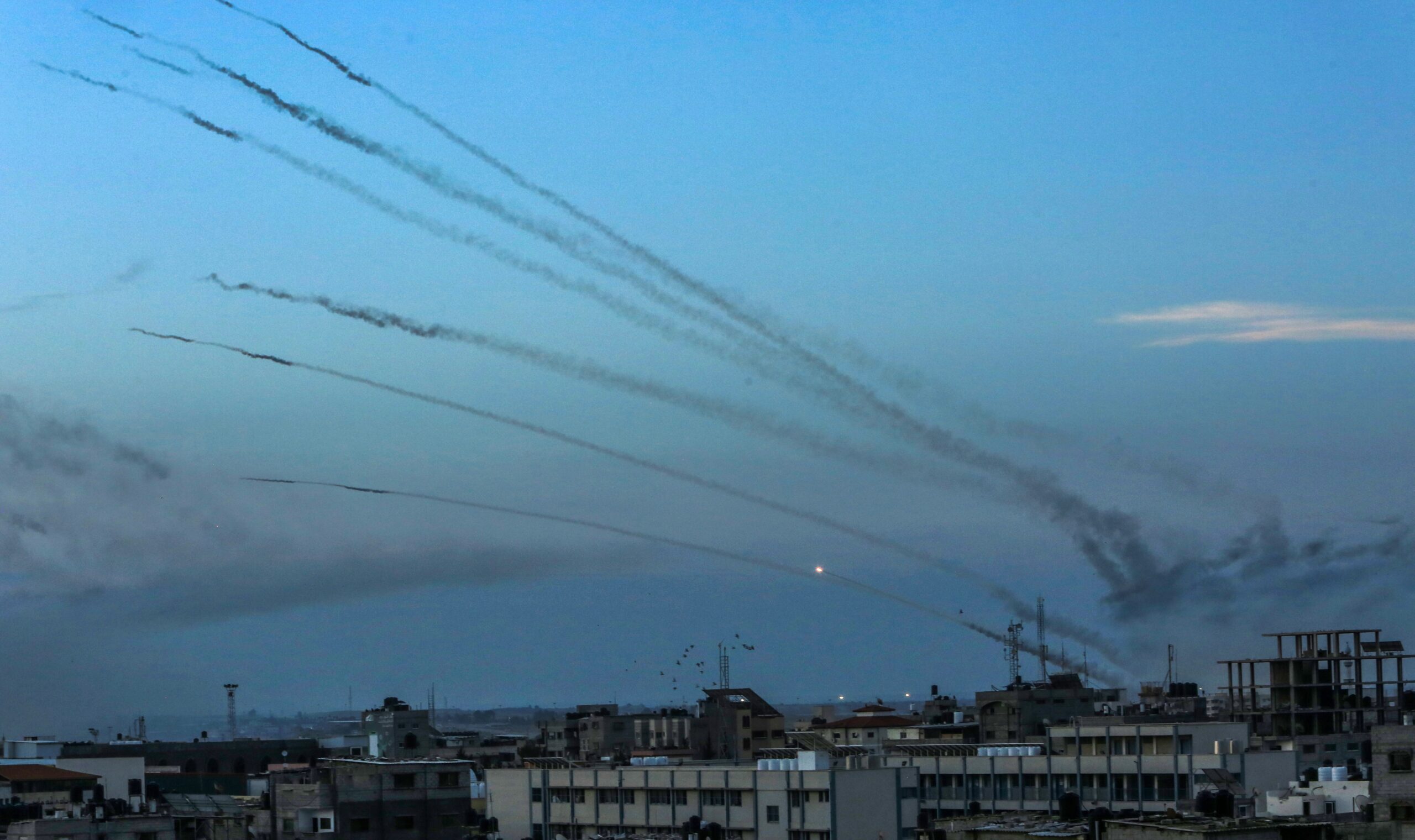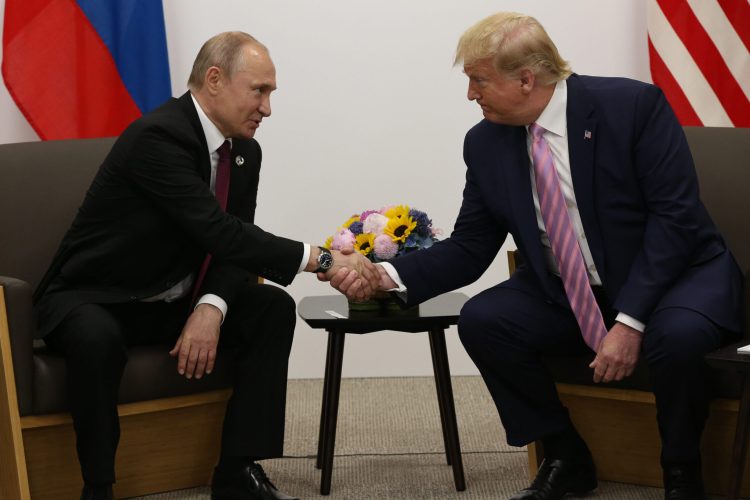
Israeli Prime Minister Benjamin Netanyahu appears to be working President Donald Trump’s last nerve when it comes to Iran.
With the White House closer to a deal than the Biden administration was ever in its four years of talking, Trump says an Israeli military strike on Tehran’s nuclear facilities would “not be appropriate.”
When asked Wednesday about a reported testy exchange with Netanyahu, Trump said he didn’t “warn” the prime minister, but was firm that he wanted to resolve the issue of Iran’s nuclear program with a deal, not war.
“We’re having very good discussions with [the Iranians] and I said I don’t think it is appropriate right now,” Trump told reporters. “If we can make a deal it will save a lot of lives.”
U.S. officials have concluded their fifth round of talks with the Iranians, moving closer to a replacement for the JCPOA nuclear deal that Trump walked away from during his first term in 2018. That agreement, brokered by President Barack Obama in 2015, included China, France, Russia, the UK, and Germany as signers. The elaborate regime of nuclear inspections, made in exchange for the lifting of sanctions on Tehran, was largely working, according to the inspectors, partners, and the United Nations. Trump, egged on at the time by the neoconservatives in his administration and in Congress, disagreed, and believed he could get “a better deal.”
Now is his time, and he doesn’t want Israel—which never wanted a deal with Iran to begin with—to stand in his way.
That sets up a clash between the interests of the United States and Israel, one that has been playing out in leaks over the last week of Israel’s “plans” to attack Iran, with or without Washington’s help or acquiescence. The New York Times published a piece Wednesday confirming that Israel’s intentions were quite explicit: “Israeli officials have dusted off an old playbook: threatening to strike Iran, even without American help. They insist they are not bluffing, even though they have made such threats and backed away several times over nearly two decades.”
For its part, Iran absolutely took Trump’s withdrawal from the JCPOA and the reimposition of sanctions as an opportunity to ramp up its uranium enrichment, but has always insisted that it is for civilian energy purposes, not to build a bomb. This has been thoroughly rejected by Israel and hardliners in Congress and the U.S. foreign policy community, who claim that Iran is now weeks, days, even an “eyelash” away from getting a nuclear weapon. They also use this as the justification for military strikes, and now the drums are beating right at Trump’s Oval Office door.
“For Netanyahu, the goal is to start the war with Iran. His influence and control over the U.S. Congress guarantees American military support for Israel as soon as the Iranians respond with a major counterstrike against Israel,” said Col. Douglas Macgregor (ret.) in an email exchange with The American Conservative.
Of course Netanyahu has his American allies working the the press at all times. They are political types like those linked to the Foundation for the Defense of Democracies, but also retired U.S. military leaders who present striking Iran’s nuclear facilities as a cakewalk, and, indeed, the only tool in the toolbox.
Not so, say experts who spoke with TAC.
“Israel could set back the Iranian program but would need U.S. support to do significant damage and to deal with the likely Iranian retaliation,” said Barbara Slavin, distinguished fellow at the Stimson Center in Washington. She said there was no way Israel could engage in its own war with Iran without American help.
Sina Toossi, senior non-resident fellow at the Center for International Policy, pointed to recent examples in which the U.S. military prevented Israel from being pummeled by Iranian missiles. Specifically, Iranian attacks in April and October 2024 (in retaliation for Israel assassinating an Iranian general and top officials and subsequently Hezbollah leader Hassan Nasrallah respectively), in which hundreds of missiles and drones were shot at Israeli targets and the U.S. (and partners) were credited with striking down a major portion of them with their own missile defense systems.
Moreover, dozens of missiles were able to break through the vaunted Iron Dome’s defenses between both attacks.
“The idea that Israel could launch a war against Iran without U.S. backing, and that Iran is too degraded to respond, is not just unrealistic, it is a dangerous illusion,” Toossi said. “Iran has already demonstrated, especially during its 2024 missile strikes, that it can carry out large-scale saturation attacks capable of overwhelming advanced air defense systems.”
“In the October operation, around 180 ballistic missiles were launched, with dozens breaking through Israeli defenses and inflicting damage on key military bases. This sent a clear message: Iran has the means to retaliate and escalate.”
He and others suggested to TAC that the Israelis know this, but are playing a dangerous game of creeping right up to the line in order to wreck the momentum of Trump’s peace talks.
“The pressure campaign we are seeing now from Netanyahu and his allies is about preventing successful U.S.-Iran diplomacy,” said Toossi. “Their goal is to box in the administration and sabotage a diplomatic track that would undermine a strategy that Israeli hardliners have spent years advancing through confrontation and isolation.”
Subscribe Today
Get daily emails in your inbox
Behind the scenes intrigue suggests that the hard press is on, with Ron Dermer, an Israeli-American who gave up his American citizenship in 2005 to work for the Israeli government, now minister of strategic affairs, shuttling back and forth with the head of Mossad in meetings with the American envoy Steve Witkoff and CIA Director John Ratliffe.
Witkoff, for his part, is busy engaging in the complexities of a new deal with Iran, particularly over Iran’s insistence that it has a right to a civilian enrichment program. This may or may not be a “red line” for both sides, but in recent days compromises by way of enrichment via an international consortium that would include other Gulf and/or Middle East states has been floated.
The bottom line is that they are doing the hard work of diplomacy, and the war talk is becoming an irritant. This was suggested in Trump’s tone to reporters, Slavin noted: “Given Trump’s repeated statements that he wants a deal and that some sort of understanding is close, Bibi would be risking Trump’s wrath to act now.”


